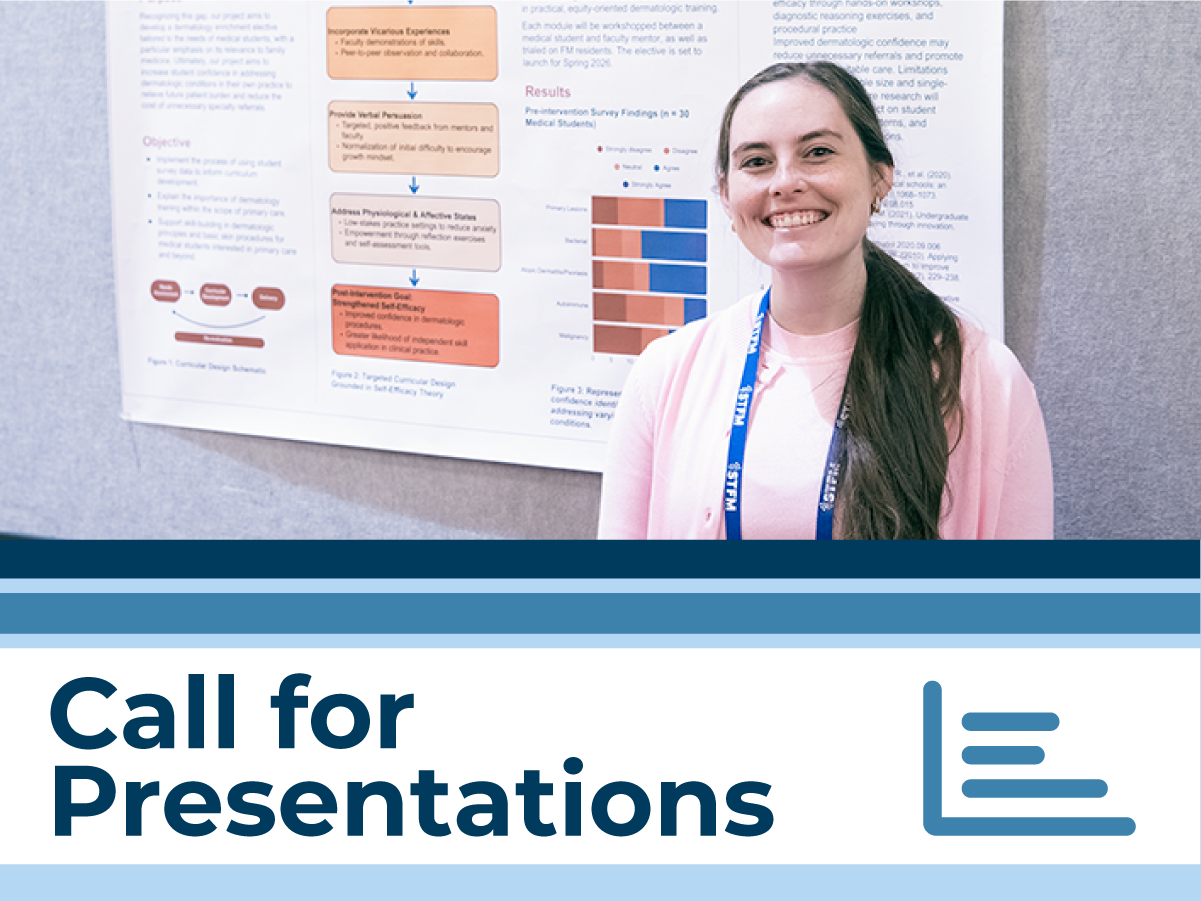The Call for Presentations for the 2026 STFM Conference on Practice & Quality Improvement (August 31–September 2, 2026 in Palm Desert, CA) is CLOSED.Registration for the 2026 STFM conference opens in summer 2026.
Session Formats
Lecture Discussion
Purpose: To provide a forum for focused didactic presentation and discussion of an in-progress clinical, research, administrative, education project or brief behavioral medicine topic with preliminary data and/or expected results.
Time: 30 minutes (20-minute presentation, 10 minutes of discussion/response)
Seminar
Purpose: To give practical information and methods to enhance practice improvement through health information and patient education efforts or to enhance resident/behavioral science education. Seminars should include a combination of presentation and active involvement of participants.
Time: 60 minutes (50-minute presentation, 10 minutes of discussion/response)
Workshop
Scholarly Topic Roundtable Discussion
Completed Poster
Purpose: To provide an opportunity for one-on-one discussion of a presenter’s completed project in education, process of care, patient-oriented outcomes, and quality of care studies. Completed posters require Purpose, Methods, Results, and Conclusions (distribution of handouts is encouraged; audiovisual equipment not provided).
Work-in-Progress Poster
Purpose: To provide an opportunity for one-on-one discussion of a presenter’s work-in-progress project related to teaching, education, curricular or clinical intervention, management innovation, or quality improvement (distribution of handouts is encouraged; audiovisual equipment not provided).
Student or Resident Poster
Purpose: To provide an opportunity for one-on-one discussion of a presenter’s work in progress project related to teaching, education, curricular or clinical intervention, management innovation, or quality improvement (distribution of handouts is encouraged; audiovisual equipment not provided).
Questions?
For questions about submitting presentation proposals, contact Kim Sevedge at (800) 274-7928 or the email link below.
CONTACT STAFF WITH QUESTIONS
